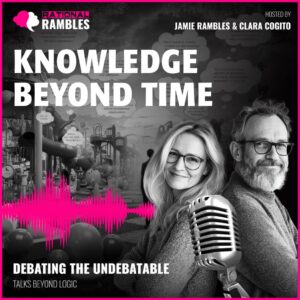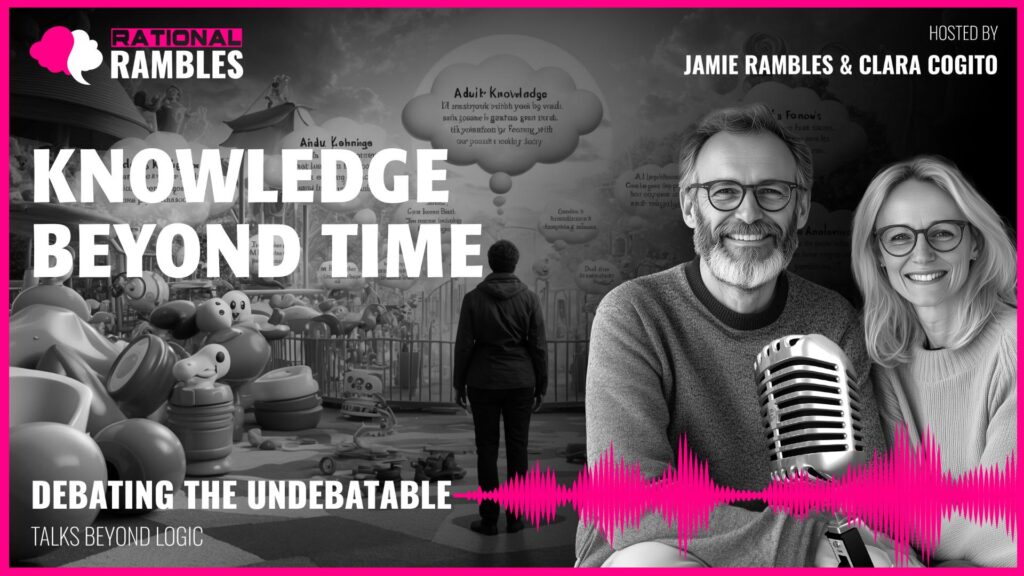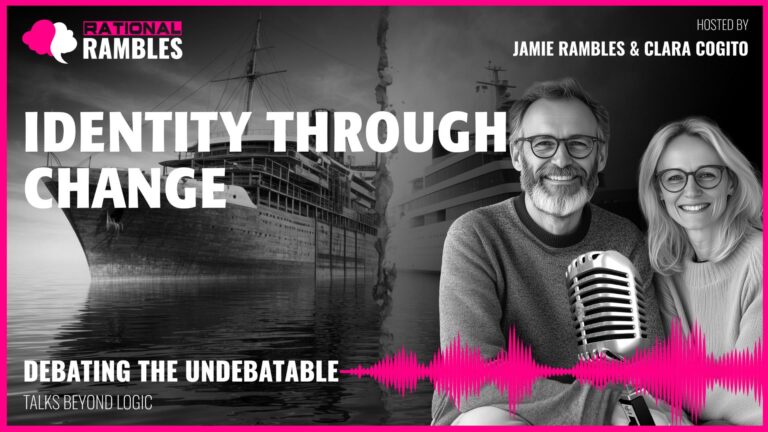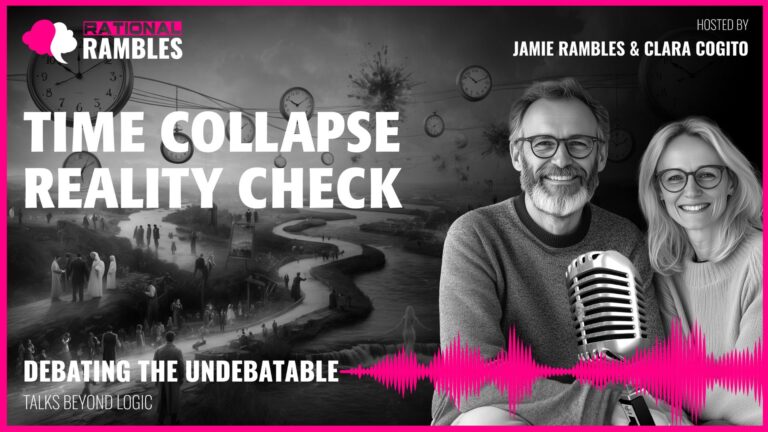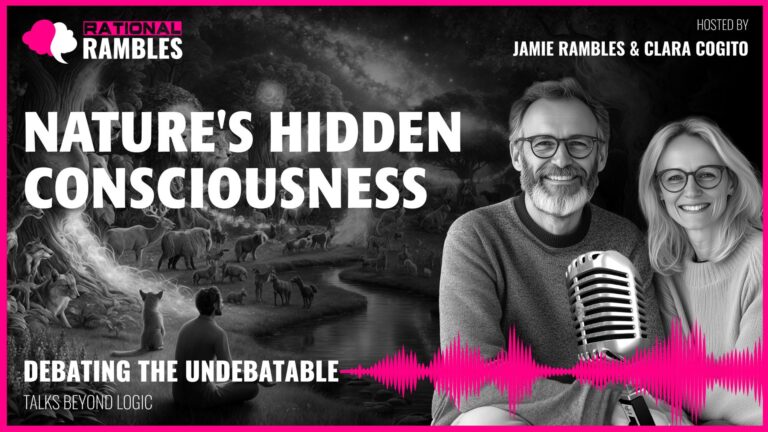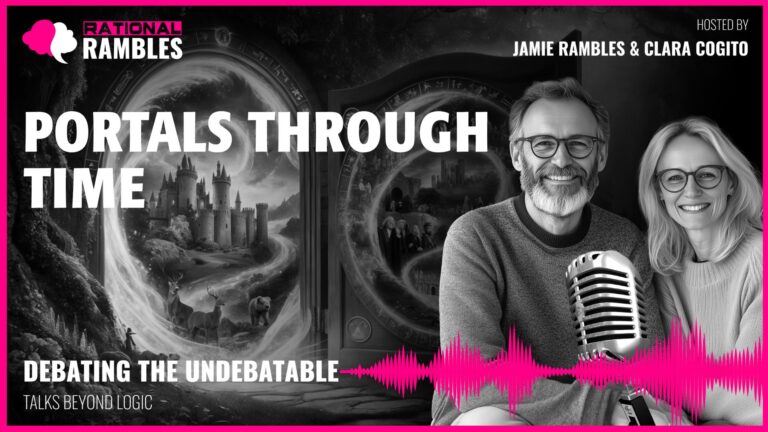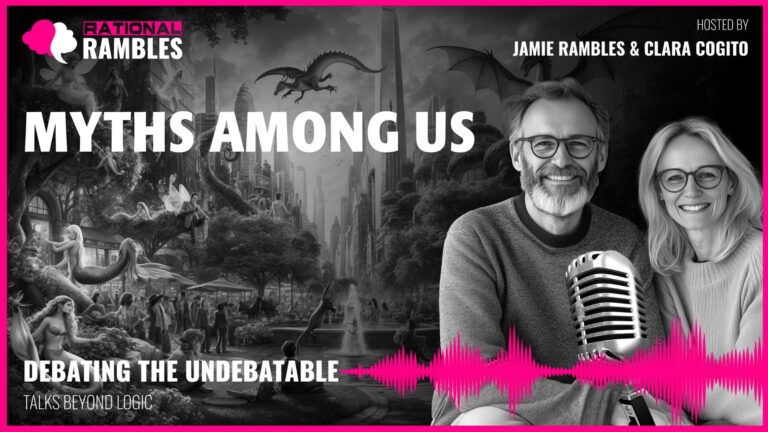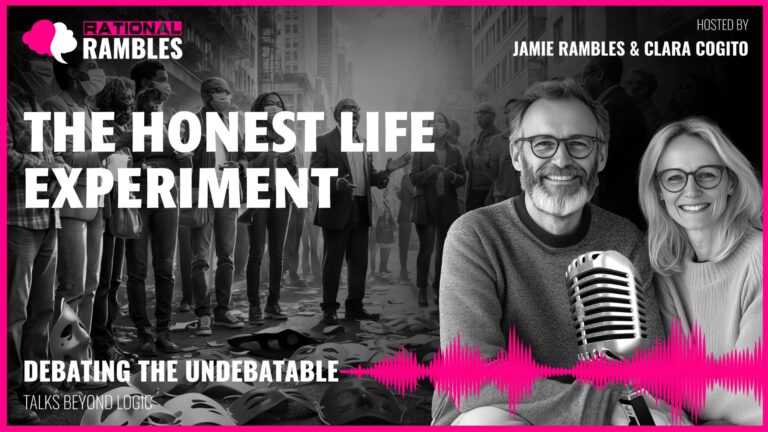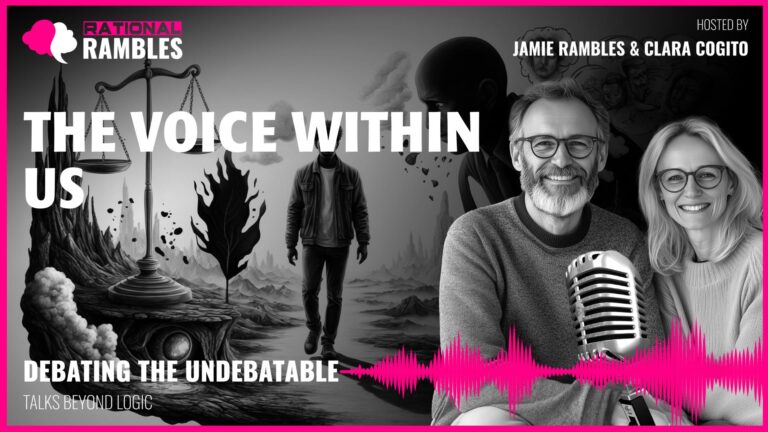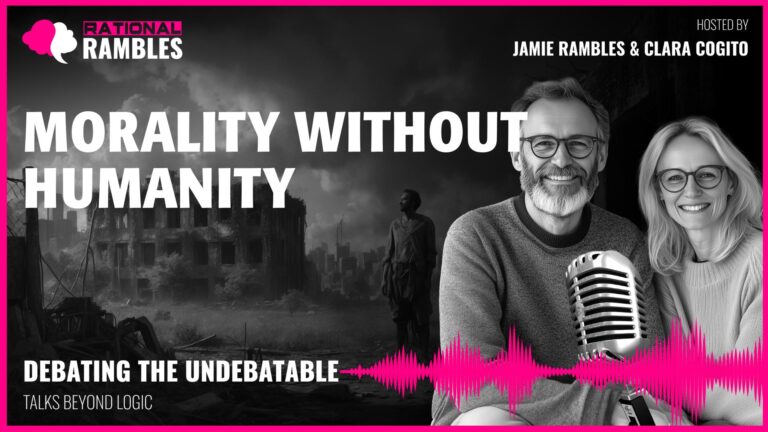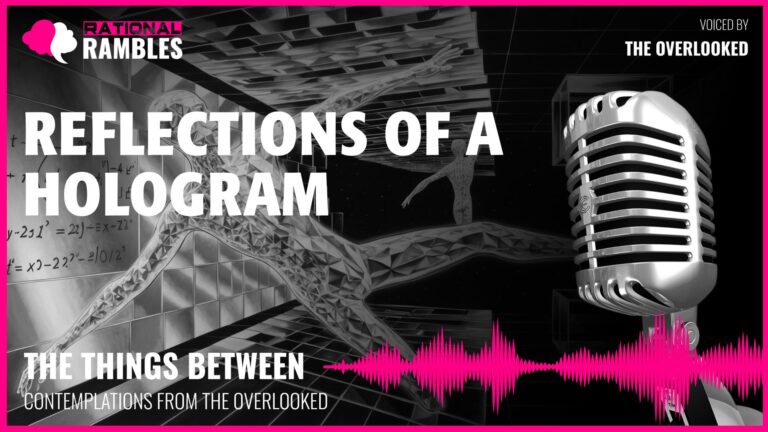Knowledge Beyond Time: The Philosophical Dimensions of Temporal Self-Awareness
Introduction: The Paradox of Temporal Experience
What if you could return to childhood with all your current knowledge intact? This seemingly simple thought experiment opens a portal into some of the most profound questions about human existence. Like Plato’s allegory of the cave in reverse, it invites us to consider what it would mean to return to an earlier state of being while carrying the light of adult wisdom. This philosophical inquiry isn’t merely speculative—it illuminates fundamental aspects of our temporal experience, identity formation, and the nature of happiness itself.
At its core, this thought experiment creates a philosophical chimera—a consciousness that combines adult cognition with a child’s neurological framework. But beyond the initial fascination, this scenario confronts us with questions that cut to the heart of what it means to be human: Would we still be ourselves with such a discontinuous timeline? How would adult knowledge interact with childlike perception? Could happiness even operate in the same way within such a hybrid state?
The questions this thought experiment raises touch on diverse philosophical traditions—from ancient Greek conceptions of wisdom to existentialist concerns about authenticity, from phenomenological analyses of lived experience to analytical approaches to personal identity. By examining this impossible scenario, we may discover important truths about our actual temporal existence and the complex relationship between knowledge, experience, and human flourishing.
The Ontology of Temporal Displacement
Returning to childhood with adult knowledge would create a profound ontological rupture—a being that exists in one temporal location while possessing memories and knowledge from another. This state represents a fundamental challenge to our understanding of temporal continuity and raises significant questions about the nature of personhood across time.
Locke’s Memory Theory and Temporal Discontinuity
John Locke proposed that personal identity persists through psychological continuity—specifically, the chain of memories connecting our past and present selves. In normal human development, this chain forms a continuous narrative as we accumulate experiences and their corresponding memories. But in the scenario of returning to childhood with adult knowledge, this continuity would be radically disrupted.
The memories you would possess would include events that, in your current timeline, haven’t yet occurred. These memories would have an ambiguous ontological status—neither purely imaginary nor reflective of your lived experience in this second childhood. Would these memories have the same status as memories of events that have actually happened in your current timeline? Or would they constitute a different kind of mental content altogether?
This scenario creates what we might call a “hybrid being” whose consciousness spans multiple possible worlds or timelines. Such a being would challenge Locke’s account of personal identity by introducing memories that don’t follow the normal temporal sequence of experience. The chain of memories would contain links to events that exist in a different possible world—the world of your first passage through childhood and subsequent adulthood—rather than in your current experiential reality.
Heidegger’s Thrownness and Temporal Being
Martin Heidegger’s concept of “thrownness” (Geworfenheit) offers another valuable perspective on this thought experiment. For Heidegger, human beings are “thrown” into existence in particular circumstances that fundamentally shape our being-in-the-world. Our thrownness includes not just our physical and social circumstances but also our temporal situation—we exist at a particular historical moment and in a particular phase of our individual lives.
Returning to childhood with adult knowledge would constitute a kind of second, deliberate thrownness—a conscious re-entry into an earlier phase of existence. But this second thrownness would be fundamentally different from the first. While a normal child experiences their circumstances as given and immediate, someone returning with adult knowledge would experience their childhood as mediated through prior understanding. They would be perpetually “out of joint” with their temporal surroundings, experiencing childhood from a perspective that transcends it.
Using Heidegger’s terminology, such a being would experience a unique form of “inauthenticity”—not in the sense of moral failure, but in the sense of experiencing existence through mediating concepts and past knowledge rather than encountering it directly. The challenge would be to find a way to authentically inhabit this unique temporal position rather than merely comparing it to previous experience.
Nagel and the Subjective Character of Experience
Thomas Nagel’s famous exploration of consciousness in “What Is It Like to Be a Bat?” provides yet another framework for understanding this scenario. Nagel argues that conscious experience has an irreducibly subjective character—there is “something it is like” to be a particular kind of being. This subjective character is shaped not just by cognitive contents but by the physical structure of the experiencing subject.
In our thought experiment, the subjective character of experience would be uniquely hybrid. Adult knowledge would exist within a child’s neurophysiology, creating a form of consciousness with no natural parallel. The adult concepts and memories would need to be processed through a child’s neural architecture, with its different emotional responsiveness, attention patterns, and cognitive capacities.
Would this create a form of experience that is neither fully adult nor fully childlike but something entirely novel? Nagel might suggest that this subjective experience would be so fundamentally altered that it would constitute an entirely different form of being—one whose “what it is like” quality would be inaccessible to both ordinary children and ordinary adults.
The Phenomenology of Dual Consciousness
Beyond the ontological questions, this thought experiment raises profound issues about the lived experience of such a dual consciousness. How would it feel to simultaneously possess childhood immediacy and adult reflection? How would this affect the quality of perception, emotion, and engagement with the world?
The First-Person Experience of Temporal Duality
Maurice Merleau-Ponty emphasized that perception is not just passive reception but an embodied engagement with the world. The first time we experience something, our entire being participates in a way that seems impossible to replicate. This raises the question: how would adult knowledge affect the phenomenology of childhood experiences?
On one hand, adult knowledge might diminish the freshness and wonder of first experiences. Knowing the scientific explanation for how rainbows form might reduce the magic of seeing one for the first time. Understanding the psychology of play might make it difficult to fully lose yourself in make-believe worlds. The analytical mode that often comes with adult knowledge might interfere with the immediacy that characterizes childlike perception.
On the other hand, adult knowledge might create possibilities for deeper appreciation. Just as a musician might hear layers in a symphony that a novice cannot perceive, adult understanding might allow for a richer engagement with experiences that children typically encounter only superficially. The adult capacity for attention to detail, contextual understanding, and recognition of significance might enhance rather than detract from childhood experiences.
This creates the possibility of what we might call “experiential double vision”—simultaneously experiencing the immediacy of childhood perception and reflecting on it with adult understanding. Edmund Husserl distinguished between “lived experience” (Erlebnis) and reflective consciousness. Typically, we’re either immersed in an experience or reflecting upon it, rarely both simultaneously. This thought experiment poses the question of whether these two modes of consciousness could coexist and what this fusion might feel like from the inside.
Emotional Regulation and Existential Awareness
Another crucial aspect of this dual consciousness would be the interaction between adult emotional knowledge and a child’s neurological framework for processing emotions. Adult knowledge would include awareness of future events, both personal and historical. Imagine being a child again in the early 2000s, knowing about future global pandemics, political upheavals, or even personal tragedies awaiting family members.
Children’s brains aren’t equipped with the same emotion regulation mechanisms as adults. The prefrontal cortical regions that help modulate emotional responses are still developing throughout childhood and adolescence. How would a child’s neural architecture handle adult-level existential anxiety or foreknowledge of loss? Would this create a perpetual state of emotional dissonance, with adult concerns overwhelming a child’s emotional capacity?
This aspect of the thought experiment evokes Greek tragedy—particularly the figure of Cassandra, who could foresee calamities but couldn’t prevent them. There would be a tragic dimension to possessing knowledge of future events while having limited capacity to influence them due to one’s child status. This combination of foreknowledge and limited agency could create a unique form of existential burden unknown in normal human development.
The Phenomenology of Play and Discovery
Perhaps the most profound phenomenological question concerns how adult knowledge would affect the experience of play and discovery that forms the heart of childhood experience. When children play, they often enter a state of genuine discovery and absorption that psychologist Mihaly Csikszentmihalyi might call “flow”—a state of complete immersion in an activity for its own sake.
Would knowing all the “game mechanics” of childhood in advance undermine this essential joy of discovery? The wonder a child experiences encountering snow or the ocean for the first time seems dependent on the novelty of the experience. Would adult knowledge inevitably transform these encounters into mere recurrences rather than discoveries?
At the same time, adult understanding of the developmental importance of play might create a meta-awareness that enriches the experience. Imagine playing with building blocks while simultaneously understanding their impact on your spatial reasoning development, or engaging in imaginative play with awareness of how it develops your social cognition. This could create a unique form of play that combines immediate engagement with reflective appreciation—a way of experiencing childhood activities that neither typical children nor adults can access.
Identity and Narrative Coherence
One of the most challenging aspects of this thought experiment concerns personal identity and the narrative coherence that typically gives meaning to our lives. How would a person with memories from a different timeline maintain a coherent sense of self? How would they integrate their adult knowledge into the unfolding story of their second childhood?
Narrative Rupture and Biographical Continuity
Philosophers like Alasdair MacIntyre and Paul Ricoeur have emphasized the narrative quality of human existence—we understand ourselves through stories, not isolated moments or facts. Returning to childhood with adult knowledge would create a narrative rupture, where the story of your life becomes non-linear and fragmented.
This would be like reading a novel where chapters from the sequel have been inserted into the original text. The coherence that gives meaning to our experiences would be fundamentally disrupted. You would possess knowledge of a life story that isn’t unfolding in the same way in this second childhood, creating a perpetual tension between remembered narrative and lived experience.
Psychologists distinguish between “psychological time” and “clock time.” Our sense of self is intimately connected to our subjective experience of temporal continuity—the feeling that our past, present, and future form a coherent whole. In this scenario, your psychological time would include memories of a future that, in this new timeline, hasn’t happened yet. This violates our normal autobiographical coherence—the story we tell ourselves about who we are.
Research suggests this kind of temporal discontinuity could trigger profound identity crises. It’s not unlike what we sometimes see in trauma survivors who experience life as “before and after” the trauma. However, in this case, the disruption would be even more profound, as it would involve not just a pivotal event but an entire alternative life trajectory existing alongside your current experience.
Memory Reconsolidation and Cognitive Dissonance
From a cognitive perspective, this scenario raises fascinating questions about memory processes. Memory reconsolidation is the neurological process whereby memories are subtly altered each time we recall them. In normal development, our memories gradually shift to accommodate new experiences and perspectives. But in this scenario, two sets of memories would be in constant tension—memories from your first life and new memories forming in your second childhood.
Would you remember events as they originally happened in your first childhood, or would those memories be continuously rewritten by your new experiences? Over time, would your adult memories begin to fade or be transformed by your new childhood experiences? This would likely create profound cognitive dissonance—holding conflicting thoughts simultaneously about what “really” happened in your childhood.
Research on counterfactual thinking—our ability to imagine alternative realities—provides some insight here. Normally, we clearly distinguish between memories of actual events and imagined scenarios. But in this case, would your brain categorize memories from your previous adult life as “real” or gradually recategorize them as something like elaborate dreams? Studies show how even strong memories can be undermined when they conflict with present sensory evidence. Being physically a child again might gradually erode the reality of your adult memories.
The “Third Developmental State” and Identity Integration
Rather than seeing this scenario as simply regressing to childhood or imposing adulthood onto childhood, we might conceive of it as creating a “third developmental state”—neither fully child nor adult but something genuinely new. This connects to research on “third culture kids” who grow up between different cultural worlds and develop unique perspectives as a result.
This unique temporal perspective might allow for a distinctive form of identity integration. Research suggests that people who can successfully integrate different aspects of their identity tend to show greater psychological flexibility and wellbeing. Perhaps the challenge in this scenario would be developing what psychologists call “narrative flexibility”—the ability to hold your life story loosely enough to incorporate new chapters without being rigidly bound to either timeline as the definitive version of your life.
From this perspective, the key to maintaining a coherent identity would not be choosing between child and adult perspectives but developing a meta-perspective that can encompass both. This would be a form of what philosopher William James might call a “richer truth” that incorporates elements of both timelines—a way of being that honors both the wisdom of experience and the openness of beginning anew.
Ethical Dimensions and Moral Responsibility
Perhaps the most troubling aspects of this thought experiment concern its ethical implications. Possessing knowledge of future events raises profound questions about moral responsibility, autonomy, and authentic relationships. What obligations would arise from foreknowledge, and how would these interact with the limited agency of childhood?
The Burden of Foreknowledge
Possessing knowledge of future events—both personal and historical—would create unique ethical dilemmas. If you knew a classmate would later develop serious problems or face tragedies, would you have a moral obligation to intervene? If you knew about future historical events like natural disasters or terrorist attacks, would you be obligated to try to prevent them?
This scenario connects to the philosophical problem of “moral luck” raised by Bernard Williams and Thomas Nagel—the recognition that moral responsibility is often affected by factors beyond our control. You would possess knowledge that could potentially prevent harm or create benefit, yet be constrained by your child status from fully acting on this knowledge.
Imagine knowing a friend will develop a serious illness that early intervention could address, or that a family member will make a devastating mistake. The weight of such foreknowledge without the full agency to act upon it could create a unique form of moral anguish. You would be like Cassandra of Greek mythology, cursed with knowing the future but unable to effectively change it due to your limited credibility and influence as a child.
This raises profound questions about the relationship between knowledge, power, and moral responsibility. Is foreknowledge without proportional power to act on it a burden rather than a gift? Would the constant awareness of your limited ability to prevent suffering constitute a form of moral torment?
Authenticity and Interpersonal Ethics
Beyond questions of intervention in future events, this scenario raises profound concerns about the authenticity of relationships. Martin Buber distinguished between I-It relationships, where we relate to others as objects to be used or manipulated, and I-Thou relationships characterized by genuine reciprocity and presence. Would foreknowledge make it impossible to engage in true I-Thou relations with childhood peers?
There seems to be an unavoidable asymmetry here. You would remember the adults these children would become, carrying knowledge they don’t have about themselves. This creates an inherent power imbalance and potential for manipulation. Could genuine connection exist under these conditions, or would all relationships be tinged with an element of deception by omission?
The relationship with parents would be especially complex. Attachment theory suggests that children need to view their caregivers as sources of security and wisdom. But in this scenario, you might have more life experience than your own parents. Imagine being nine years old and knowing how your parents’ financial decisions will affect your family’s future, or being aware of health issues they’ll face later in life.
The natural parent-child dynamic would be profoundly disrupted. And psychologically, we know role confusion in families can create significant stress and identity challenges. Would you be able to authentically inhabit the role of a child while possessing knowledge that typically belongs to adults? Or would this create a perpetual state of performance rather than genuine relationship?
Moral Development and Ethical Frameworks
This scenario also raises fascinating questions about moral development. Lawrence Kohlberg’s stages suggest that children typically reason about morality differently than adults, focusing more on rules and consequences than abstract principles. Would your adult moral reasoning transfer completely, or would it be influenced by your child brain’s developmental constraints?
We see something similar with bilingual individuals who sometimes make different moral judgments in different languages. Perhaps you’d experience a kind of “moral bilingualism”—navigating between child and adult ethical frameworks depending on the situation. This could create internal conflict when these frameworks suggest different courses of action.
Furthermore, there’s the question of how this scenario would affect the development of virtues. Aristotle emphasized that virtuous character develops through practice—by repeatedly acting in virtuous ways until they become habitual. In this scenario, would your adult knowledge of virtue concepts allow you to bypass the normal developmental process of moral formation? Or would you still need to develop the embodied habits of virtue despite intellectual understanding of moral concepts?
This scenario thus offers a unique lens on the relationship between moral knowledge and moral character. It suggests that even perfect moral knowledge would not eliminate the need for developing moral habits through practice—highlighting the distinction between knowing what is right and being disposed to do what is right through cultivated character.
Happiness and Human Flourishing
Ultimately, our thought experiment leads us back to ancient philosophical questions about happiness and the good life. Would returning to childhood with adult knowledge make you happier? Would it offer a unique path to human flourishing unavailable through normal development?
Hedonic versus Eudaimonic Wellbeing
Contemporary psychology distinguishes between hedonic wellbeing—pleasure and positive emotions—and eudaimonic wellbeing, which involves meaning, purpose, and self-realization. This distinction has roots in ancient philosophy, particularly Aristotle’s concept of eudaimonia or human flourishing.
In terms of hedonic wellbeing, the dual consciousness scenario presents a complex picture. On one hand, adult knowledge might diminish simple pleasures by reducing novelty and spontaneity. The pure joy a child experiences from simple activities might be diluted by adult analysis and comparison to previous experiences.
On the other hand, research in positive psychology suggests that mindfulness and present-moment awareness—which many adults struggle to achieve—can significantly enhance our experience of joy. Children naturally possess this quality, and combining it with adult metacognition could potentially create a uniquely rich experience. Imagine approaching childhood play with both authentic engagement and the reflective appreciation that usually comes only in retrospect.
In terms of eudaimonic wellbeing, this scenario offers fascinating possibilities. Aristotle’s conception of eudaimonia centered on the exercise of virtues in accordance with reason—living excellently as the kind of being one is. This scenario might offer a unique form of excellence unavailable in normal development—the ability to integrate childlike wonder with adult understanding, immediate experience with reflective wisdom.
Relational Happiness and Existential Loneliness
However, there’s another crucial dimension to consider—relational happiness. Contemporary research consistently shows that meaningful relationships are among the strongest predictors of subjective wellbeing. How would this dual consciousness affect your connections with others?
Developmental psychology emphasizes that healthy relationships require a degree of mutuality and shared understanding. There’s something potentially isolating about having experiences that cannot be fully communicated or understood by those around you. The asymmetry of knowledge in relationships with peers and family members could create a profound sense of existential loneliness—of being the only person with your unique temporal perspective.
This connects to broader philosophical questions about the intersubjective nature of happiness. Martin Heidegger and other continental philosophers emphasized that human existence is fundamentally “being-with-others.” Our happiness is not merely a subjective state but is embedded in shared worlds of meaning. The inability to fully share your temporal perspective might create a unique form of alienation that undermines the intersubjective foundation of happiness.
Integration as a Path to Flourishing
Perhaps the most promising approach to happiness in this scenario would involve neither surrendering to childhood immediacy nor remaining trapped in adult reflection, but achieving a dynamic integration of both perspectives. This connects to philosophical traditions that emphasize the integration of apparent contradictions—from Heraclitus’ unity of opposites to the Taoist concept of yin and yang.
The philosopher G.W.F. Hegel offered a useful concept with his notion of Aufhebung—often translated as “sublation”—where contradictions aren’t simply resolved but preserved and transformed at a higher level. In this scenario, the contradiction between childlike experience and adult knowledge wouldn’t be eliminated but transcended through a higher synthesis that preserves elements of both.
T.S. Eliot captured something similar in “Little Gidding” when he wrote: “We shall not cease from exploration, and the end of all our exploring will be to arrive where we started and know the place for the first time.” This suggests that the highest wisdom might come from returning to beginnings with the depth that only experience can provide.
From this perspective, happiness in our thought experiment wouldn’t come from choosing between adult knowledge and childlike experience but from developing what William James might call a “richer truth” that incorporates elements of both—a way of being that honors both the wisdom of experience and the openness of beginning anew.
Wisdom and Temporal Integration
Beyond the question of happiness lies the possibility that this scenario might offer a unique path to wisdom. By creating an impossible conjunction of temporal perspectives, it could potentially reveal insights about time, identity, and human flourishing unavailable through normal developmental pathways.
Perspectivism and Multiple Viewpoints
Friedrich Nietzsche’s perspectivism argued that truth emerges from the integration of multiple viewpoints rather than a single absolute perspective. He suggested that the capacity to adopt multiple perspectives was a sign of intellectual strength and deeper understanding.
In this light, our thought experiment offers the ultimate perspectival experience—simultaneously viewing life through the lenses of childhood immediacy and adult reflection. This could potentially lead to a unique form of wisdom unattainable through normal developmental pathways—a wisdom born from the tension between different temporal viewpoints.
This connects to research on cognitive development suggesting that advanced forms of cognition often involve the integration of multiple perspectives. Developmental psychologist Robert Kegan describes the highest stages of adult development as characterized by the ability to hold multiple frameworks simultaneously rather than being embedded within a single framework. Our thought experiment might offer an accelerated path to this kind of meta-perspective.
Creativity and the Integration of Play and Knowledge
Many philosophers from Friedrich Schiller to Hans-Georg Gadamer have noted the connection between play and creative insight. Children play naturally, while adults often struggle to access that playful state. But perhaps the most profound creativity emerges from the tension between playful exploration and disciplined knowledge—exactly what this scenario might facilitate.
Research on expert performance shows that the highest levels of mastery involve both technical understanding and spontaneous flow. By combining adult knowledge with childlike exploratory tendencies, this scenario might create unique possibilities for creative insight and innovation. To use a musical metaphor, it would be like simultaneously experiencing the joy of first hearing a piece and the deeper appreciation that comes from understanding its structure.
This connects to recent research on “cognitive playfulness” as a factor in adult creativity and innovation. Studies suggest that maintaining childlike curiosity and willingness to experiment while applying adult analytical skills creates optimal conditions for breakthrough thinking. Our thought experiment essentially builds this cognitive tension into the very structure of consciousness.
Temporal Wisdom and Spiral Development
Perhaps the most profound form of wisdom this scenario might offer is what we could call “temporal wisdom”—a deeper understanding of the relationship between past, present, and future in human experience. Normal development allows us to look backward with increasing perspective but never to inhabit earlier stages again with our current awareness.
This scenario offers what developmental psychologists might call a “spiral progression”—returning to similar points but at a higher level of integration. The child with adult knowledge wouldn’t simply be replaying childhood or imposing adulthood onto it, but creating a genuinely new developmental trajectory that might access unique forms of understanding unavailable to either ordinary children or adults.
This spiral metaphor echoes Hegel’s philosophical method, where each stage of development preserves and transforms elements of previous stages rather than simply leaving them behind. It suggests that wisdom might lie not in progressing linearly away from childhood but in finding ways to integrate childlike qualities with adult understanding in a higher synthesis.
Ultimately, this thought experiment suggests that wisdom may not lie in either innocent immediacy or detached reflection alone, but in their dynamic integration. It points toward a conception of human flourishing not as a fixed state to achieve but as an ongoing creative dialogue between different modes of temporal being—between the openness to experience characteristic of childhood and the depth of understanding that comes with maturity.
Conclusion: The Paradoxical Nature of Temporal Existence
Our exploration of this thought experiment ultimately reveals something profound about the human condition itself. We are beings who exist in time yet yearn to transcend it, who seek both the immediacy of experience and the meaning that comes from reflection upon it. The scenario of returning to childhood with adult knowledge, by creating an impossible conjunction of temporal perspectives, paradoxically illuminates something essential about our everyday existence—that we are constantly navigating between different temporal modes of being.
Perhaps what makes this thought experiment so compelling is that it magnifies tensions that exist in all human lives: between different temporal perspectives, between knowledge and experience, between individual autonomy and relational authenticity. The question of whether it would make us happier might ultimately depend on our capacity to integrate these tensions creatively rather than resolve them definitively.
This suggests a broader philosophical insight about human flourishing—that it may not lie in eliminating life’s fundamental tensions but in dancing with them creatively. The truly fulfilled life might not be one that achieves a fixed state of happiness but one that maintains a dynamic balance between seemingly opposed values: between wonder and wisdom, immediacy and reflection, openness to experience and depth of understanding.
In this light, our impossible thought experiment offers a mirror in which we might see our actual condition more clearly. Whether or not we could actually return to childhood with our current knowledge, contemplating the possibility enriches our understanding of time, identity, and happiness in ways that may help us live more mindfully in the one life we do have.
As T.S. Eliot suggested, perhaps the ultimate wisdom lies not in escaping time but in a deeper engagement with it—one that allows us to “arrive where we started and know the place for the first time.” This thought experiment, by imagining an impossible temporal loop, paradoxically points toward possibilities for temporal wisdom available in our linear lives—the capacity to revisit our beginnings not physically but through a consciousness that integrates childlike wonder with mature understanding.
In the end, what this philosophical exploration reveals is not a definitive answer about whether such a return would make us happier, but a deeper appreciation of the paradoxical nature of temporal existence itself—and perhaps, in that appreciation, a glimpse of what wisdom might look like in a finite human life.


